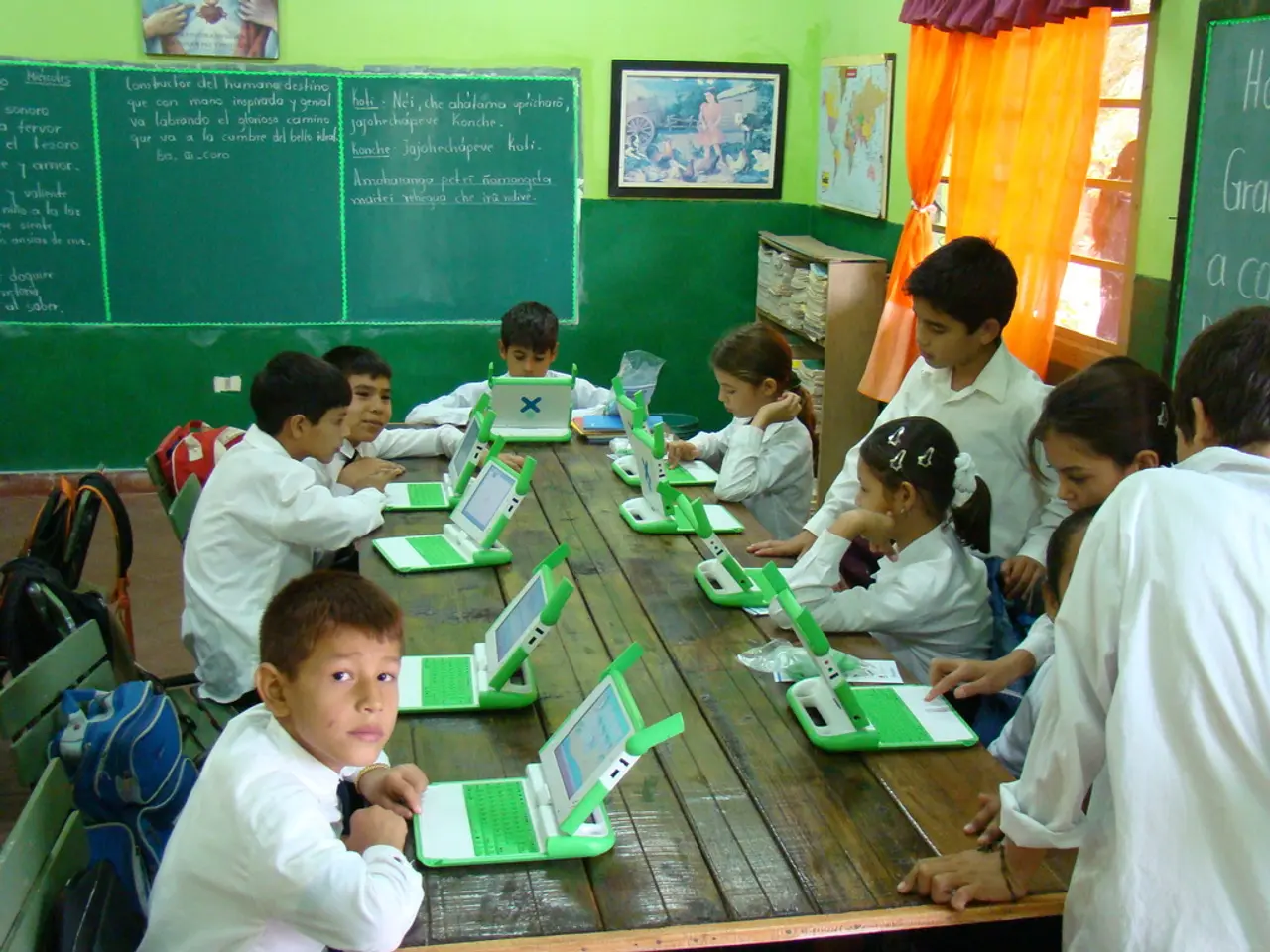Tech platforms supporting job growth among African youth
In an effort to bridge the digital divide and tackle youth unemployment across Africa, tech platforms are expanding their reach through innovative solutions, partnerships, and training programs.
One of the key challenges in this endeavour is improving access to reliable internet and electricity, particularly in rural areas. However, tech platforms are overcoming this obstacle by making their platforms more accessible for mobile users and low-bandwidth environments.
The success of these platforms hinges on expanding digital literacy initiatives in underserved regions. By doing so, more people can access tech platforms and training opportunities, thereby equipping them with essential digital and professional skills.
Africa's most in-demand digital skills include software development and programming, data analysis and data science, digital marketing, and cybersecurity. To address this, several top tech platforms are focusing on job matching, digital skills training, remote work, and gig opportunities.
One such platform is the Harambee Youth Employment Accelerator from South Africa. Leveraging AI powered by Google Cloud, this scalable cloud-based platform matches young people to jobs based on their skills. To make it more accessible, the platform is zero-rated in South Africa, allowing free access for youth.
Another initiative is Vodacom’s Code Like a Girl, a digital skills training program that has trained over 23,000 young women in coding and robotics. This program addresses the digital skills gap and gender disparities in tech across multiple African countries.
Various bootcamps and online platforms, developed in partnership with major tech companies like AWS, Microsoft, and Skillsoft, are delivering free digital education and vocational training to youth in at least eight African countries. The aim is to reach one million learners by 2027.
FINCA Canada's vocational training and entrepreneurship program focuses on technical and vocational education combined with mentorship and access to financial services to empower youth in East Africa. This program supports job placements and entrepreneurship.
Emerging digital platforms in the gig economy enable youth to participate in flexible, task-based gig work such as content creation, online teaching, ride-hailing, delivery services, and electronic retailing. This growing ecosystem is supported by rising smartphone and mobile internet penetration but faces challenges such as income instability and lack of labor protections.
Building stronger collaborations between platforms and local businesses can create more internship opportunities. While in-person internships provide face-to-face networking and direct department-specific experience, they are more expensive due to living costs. On the other hand, online internships are cost-effective, accessible from anywhere, and fit around flexible schedules, but they require a stable internet connection.
Young people in rural areas can access tech platforms and training opportunities by leveraging mobile devices, affordable internet solutions, and community resources. This approach not only equips them with digital skills but also provides them with opportunities to participate in the growing digital economy.
Together, these platforms and programs use a combination of AI-powered job matching, digital skills bootcamps, remote work facilitation, and gig economy engagement to tackle youth unemployment across Africa with scalable, tech-enabled solutions.
[1] Harambee Youth Employment Accelerator. (n.d.). Retrieved from https://harambeeglobal.org/ [2] Vodacom. (2020). Code Like a Girl. Retrieved from https://www.vodacom.co.za/about-us/sustainability/code-like-a-girl [3] FINCA Canada. (n.d.). Vocational Training and Entrepreneurship Program. Retrieved from https://www.fincacanada.org/what-we-do/programs/vocational-training-entrepreneurship-program/ [4] World Bank. (2020). Gig Economy in Africa. Retrieved from https://www.worldbank.org/en/topic/digitaldevelopment/brief/gig-economy-africa [5] McKinsey & Company. (2018). The gig economy in Africa: A new source of growth and jobs. Retrieved from https://www.mckinsey.com/business-functions/mckinsey-digital/our-insights/the-gig-economy-in-africa-a-new-source-of-growth-and-jobs
- The expansion of tech platforms across Africa not only includes education and self-development training, but also encompasses general news, as these platforms aim to provide a comprehensive digital environment for youth.
- With the rise of the gig economy in Africa, technology plays a significant role in lifestyle changes, as it offers young people opportunities to participate in flexible, task-based work, such as content creation or ride-hailing, using mobile devices and affordable internet solutions.




